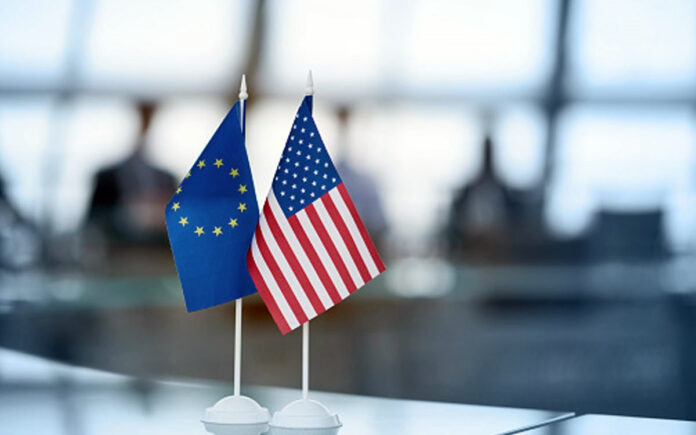Brussels: The European Commission has begun providing burner phones and basic laptops to officials traveling to the United States, marking a significant escalation in its security protocols. This level of precaution, previously reserved for visits to high-risk regions such as China and Ukraine, reflects mounting unease over surveillance risks and growing diplomatic strain between Brussels and Washington.
According to a report by the Financial Times, the directive primarily targets senior EU officials attending the upcoming spring meetings of the International Monetary Fund (IMF) and the World Bank in Washington. As part of the guidance, officials are urged to avoid using standard IT devices during their visit, amid fears of potential espionage by U.S. authorities.
The report further notes that officials have been instructed to power down their mobile phones at the U.S. border and use protective sleeves to shield against potential electronic spying—tactics that mirror longstanding EU precautions in dealing with Chinese cyber-surveillance threats.
Concerns have grown more acute since former President Donald Trump entered office. His administration’s adoption of an aggressive foreign policy—reintroducing tariffs on EU exports and signaling a softer stance toward Moscow—has dramatically altered the foundation of U.S.-EU relations.
Trump’s repeated hints at pulling back from traditional American defense commitments in Europe have only added to the unease, raising questions about the durability of the transatlantic alliance. These shifts have led EU officials to adopt a more cautious stance, particularly on issues of trade, data regulation, and diplomatic engagement.
Currently, EU Trade Commissioner Maroš Šefčovič is in Washington for negotiations with U.S. Commerce Secretary Howard Lutnick. The talks aim to defuse a long-standing trade dispute over American tariffs on European steel and aluminium. While Brussels has approved retaliatory tariffs on €21 billion worth of U.S. products, those measures remain unenforced as dialogue continues.
Meanwhile, tensions continue to escalate over U.S. criticism of EU digital regulations. American officials have accused Brussels of infringing on freedom of speech and interfering in democratic processes. These accusations were intensified by the EU’s decision to block a Romanian presidential candidate who had gained popularity through TikTok.
Also Read | Meta Chief Zuckerberg Confronted Over Past Emails in Meta Antitrust Lawsuit
Compounding European concerns are the expansive powers granted to U.S. border agents. Authorities in the United States are legally allowed to search and confiscate electronic devices at entry points. There have been several documented cases where European researchers and academics were denied entry based on content found on their devices or social media posts critical of U.S. policy.
One such incident occurred last month when a French academic was reportedly turned away after voicing dissent over U.S. research regulations.
Also Read | China Accuses NSA of ‘Advanced’ Cyberattacks During Asian Winter Games, Names Alleged Agents
To reduce such risks, EU officials have now been instructed to use diplomatic “laissez-passer” credentials when applying for U.S. visas, instead of their national passports, further underscoring Brussels’ growing mistrust toward Washington’s border protocols.
The latest measures indicate a deepening mistrust between two longstanding allies, raising broader concerns about data privacy, surveillance, and the future of international diplomacy in an increasingly polarized geopolitical environment.



